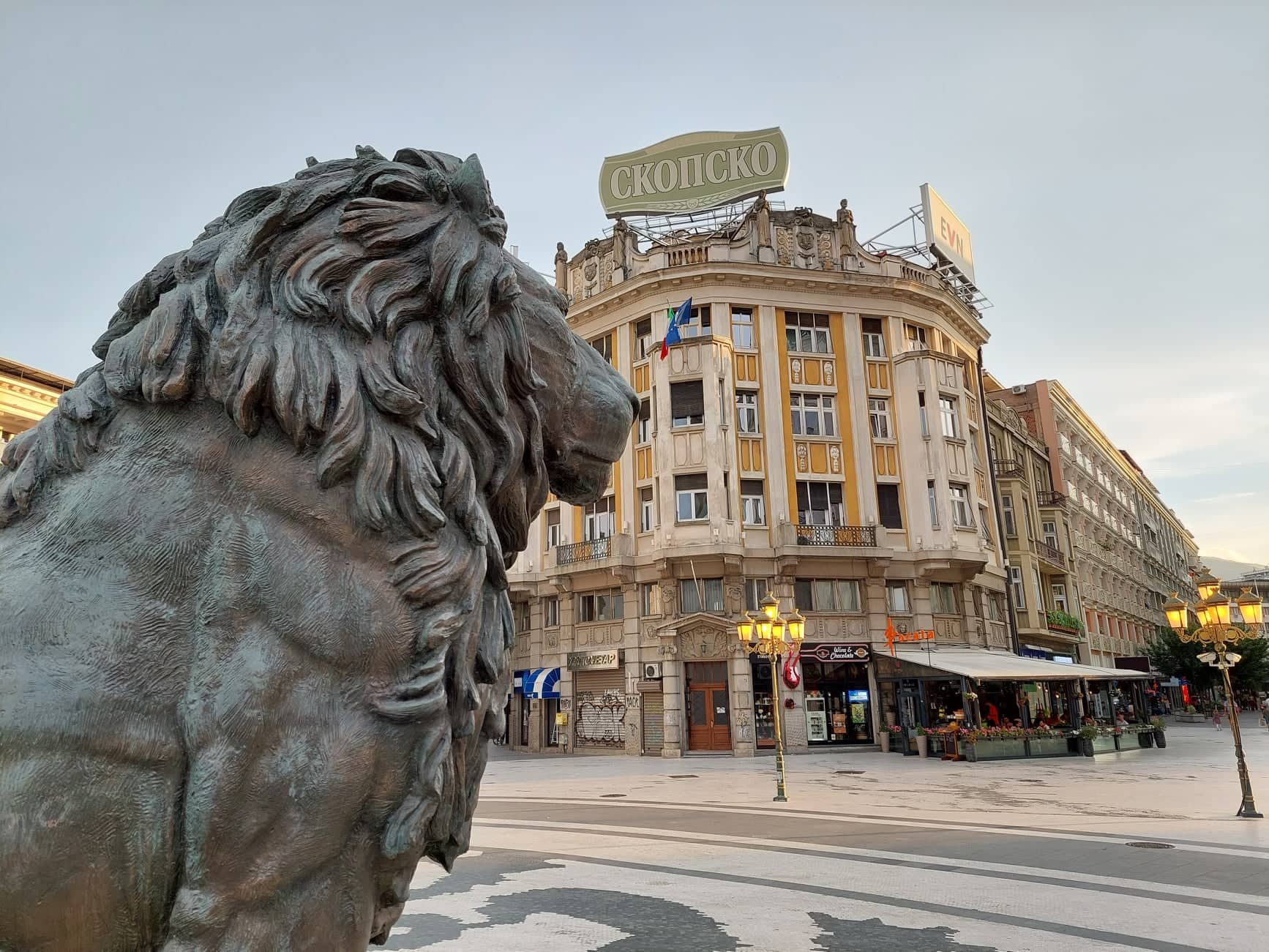
Support for EU accession declines in candidate country
Skepticism towards the European Union is growing in North Macedonia. A recent poll found that people's confidence in the country becoming an EU member in a few years is decreasing. Macedonians are mostly worried about Bulgarians, while they says their best friends are the Serbs.
Almost a third of Macedonians hope they will never join the EU
Unfair and extortionate… this is how most Macedonians see Brussels’ attitude towards their country. 65 per cent of the people polled believe this is the way the European Union treats the Balkan state, according to a fresh poll conducted by the Eurothink European Strategy Centre in the candidate country at the end of last year, with over a thousand people interviewed by telephone.
Support for EU integration in the country has declined significantly in the course of just one year, and 61 per cent of Macedonians believe that their country is not democratic, Eurothink wrote, presenting the poll’s findings. An overwhelming majority of the population, 72 per cent, believe that North Macedonia is heading in the wrong direction. In contrast, only 9 per cent believe that the Macedonian government’s decisions are taking the state in the right direction.
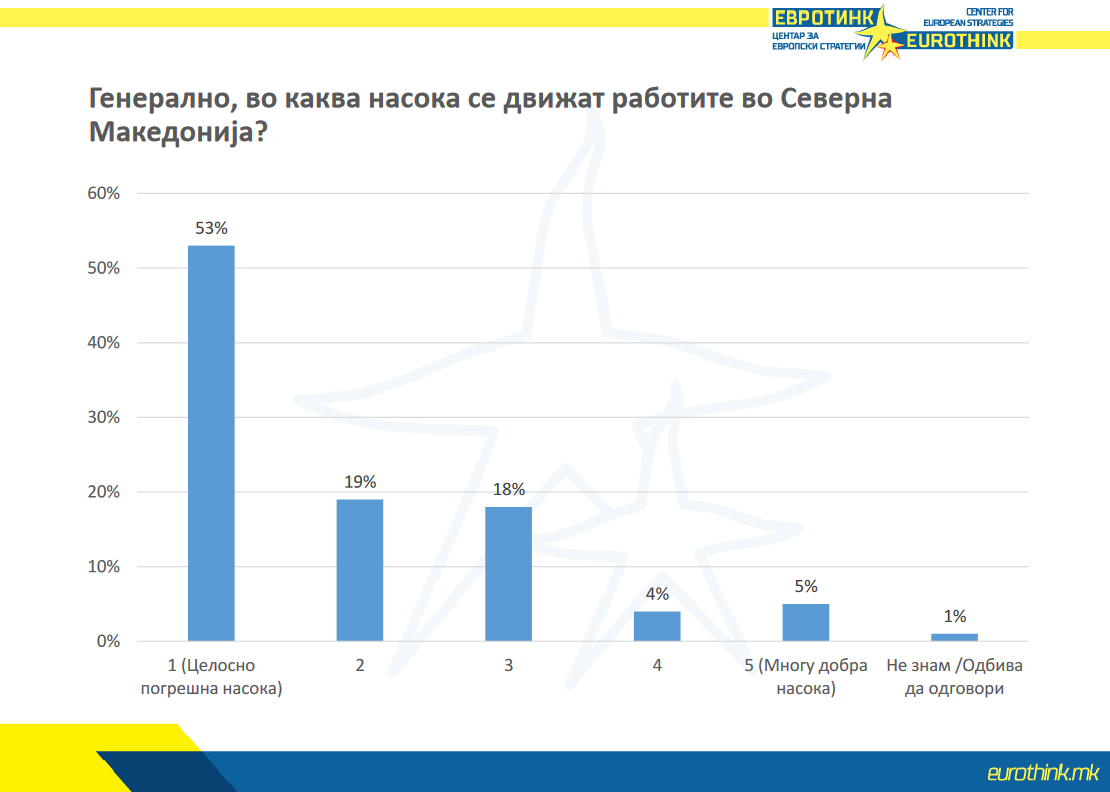
Image: screenshot
The poll shows that currently 49 per cent of the population think that EU membership would be good for the country in general, which is a 20-percent drop from autumn 2021.
Assessing the results, the centre‘s director, Dimitar Nikolovski, said that Macedonians’ confidence in the European Union is at a record low, and that support for the Balkan state’s accession process is declining.
#eurothink #evrometar #results #media pic.twitter.com/tNSehRL471
— eurothink.mk (@eurothinkMK) February 8, 2023
„When asked how they see the EU’s attitude towards Northern Macedonia, the highest number of respondents, 65 per cent, said it was unfair and extortionate. Meanwhile, a mere 17 per cent of people think that the relationship is fair. These figures show a 20 per cent drop in support compared to the previous year,”
the director emphasized.
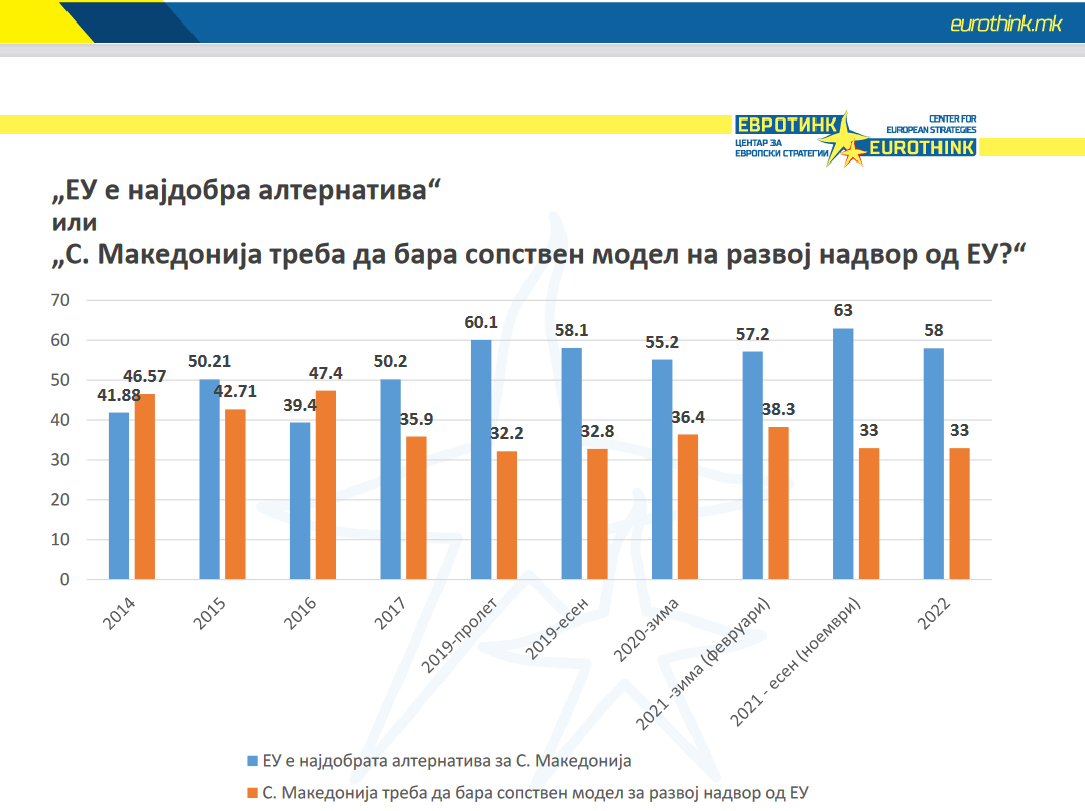
Image: screenshot
The survey also found that a third of people, 33 per cent, believe that North Macedonia should place its development on a path outside the European Union. There is also considerable skepticism about EU integration, with almost 30 per cent of citizens surveyed saying that they don’t think the country will ever become a member of the EU.
Asked when North Macedonia will become a full member of the European Union, only 12 per cent of respondents said they think the country will be a member in the next 5 years, while 16 per cent expect to integrate in 5 to 9 years. 58 per cent of people remain in favour of EU membership, even despite the growing anti-EU sentiment. If a referendum on the issue was held today, 58 per cent of the votes would be in favour.
Bulgarians are considered the biggest enemy
The poll also reveals that there is a degree of fear in people, with results showing that42 per cent of Macedonians believe that there is a state or international organisation that poses a threat to the country. Bulgaria is the most disliked country, while Serbs are the most loved.
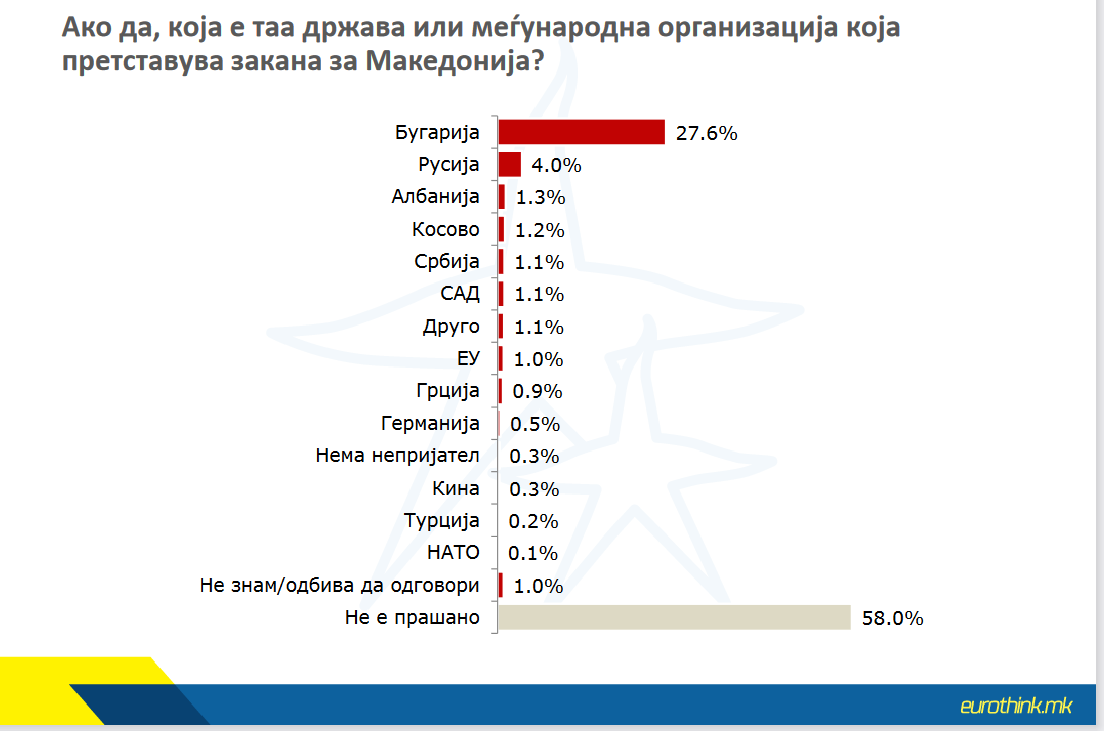
Image: screenshot
„Bulgaria is seen as North Macedonia’s biggest enemy, and this is a constant trend, a growing trend. Last year, 23 per cent thought that Bulgaria was their number one, and biggest enemy. This year, that figure has risen to almost 28 per cent. In contrast, Serbia is considered the friendliest country, with 37 per cent thinking so,”
the expert underlined.
There is a huge antipathy towards Bulgarians, and fear of their threats. The Russians are second in this category, but with a significant gap: only 4 per cent believe that Moscow could pose a threat to North Macedonia.
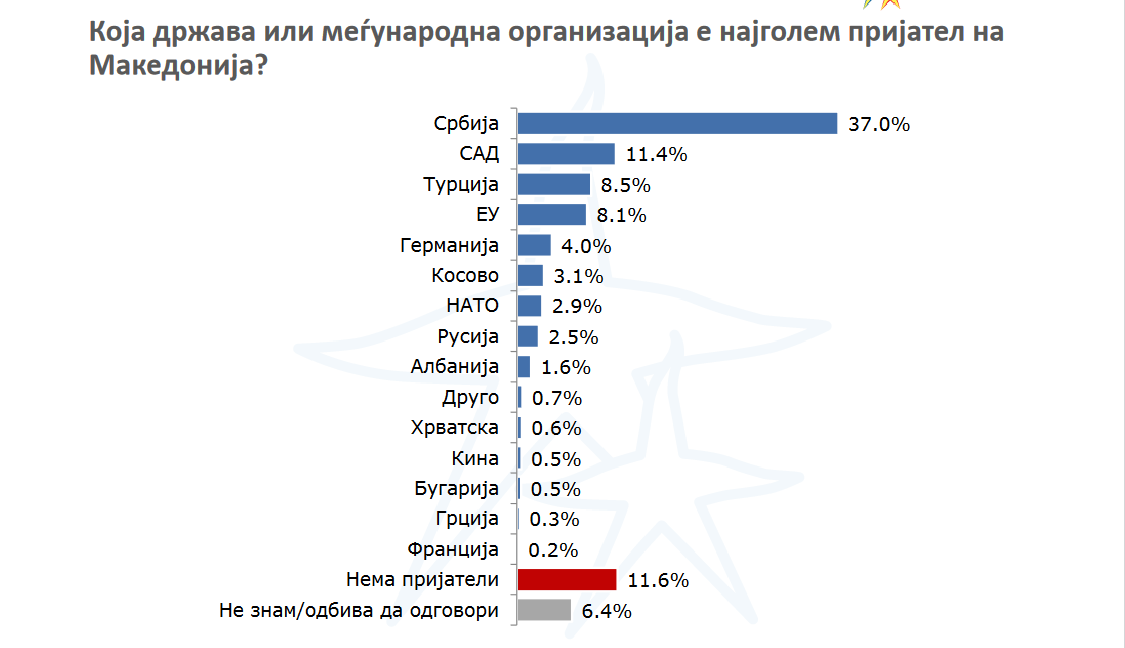
Image: screenshot
Serbia has an even greater advantage over the other countries as far as cordial relations are concerned. 37 per cent of those polled think that Serbs are the best partners. The United States of America comes in second, with 11 per cent, followed by Turkey, the EU, Germany and Kosovo.

